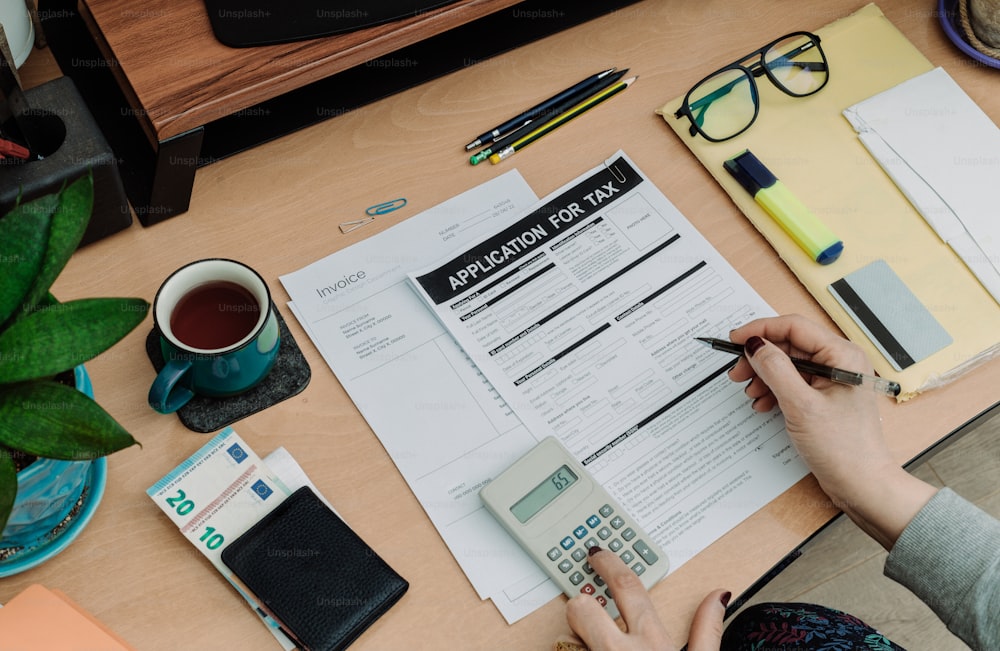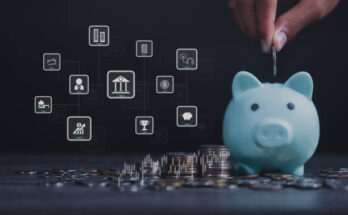Pay Off Your Debt and Track Your Progress
If you’re having trouble controlling your debt and don’t have a strategy to pay it off, start here. These simple debt reduction techniques contain expert-recommended financial tactics as well as straightforward advice on how to develop better money management skills.
Make a note of all the debts you have before beginning to pay them back, including the type, balance due, and interest rate. Decide if the debt is a credit card, student loan, mortgage, or another type of debt.
Create a budget
Image via Unsplash.com
Making a monthly budget and tracking your income and expenses are the first steps in paying off debt.
Creating a budget is a simple method to get organized before beginning debt repayment. Yours might be as straightforward as a spreadsheet or more complicated, using budgeting tools like Mint to carefully monitor each expense and debt repayment.
Pay expensive debt first
According to the debt avalanche strategy, you should start by paying off the debts with the greatest interest rates. You keep making the minimum payments on your other, less costly obligations while concentrating any extra money you have on your most costly loans.
By eliminating bad debts more rapidly, this method can end up saving you money over the long run.
Snowball method to pay debt
Image via Unsplash.com
The debt snowball method calls for beginning with the smallest bills. It is simpler to start by fully repaying a smaller debt than it is to attempt to take on a larger school loan or mortgage obligation. Additionally, paying off a minor debt could inspire you to keep going with your repayment plan.
Depending on your financial stability and other considerations, you can choose which loan to pay off first.
The debt snowball strategy, like rolling a snowball across the ground, develops momentum as you begin paying creditors. Pay off your debts in order of decreasing value first. List your debts from smallest to largest balance first. Make sure you pay the minimum on all other debts and extra money to the debt with the least balance as long as it isn’t paid in full.
Apply the same plan to the other debts. As you settle bills, you’ll have more money to pay down other loans. Additionally, making progress is motivating and can help you stay on pace for debt repayment.
Pay more than minimum
You’ll probably need to pay more than the minimum balance due each month to really make a dent in your credit card debt.
As long as the additional payments wouldn’t be better used on other debts, you may also think about adding more money to the principal of a mortgage.
Advantageous balance transfer
Image via Unsplash.com
You can transfer your debt from one account to another via a balance transfer. If the new account offers a reduced interest rate permanently or as part of an introductory deal, you might choose to do this. However, you will need to apply for the new balance transfer card and get it accepted, which frequently calls for good credit.
Your credit card spending
Consider taking all of your credit cards out of your wallet if excessive spending is causing you to incur more debt than necessary. This simple strategy may help you concentrate on managing your finances while removing the temptation to overspend.
Debt replacement apps
Apps like Tally and Undebt.it that track debt payments provide users with a clear, user-friendly mechanism for doing so.
Additionally, you can benefit from free credit reports and services that let you keep a close eye on your credit score. Equifax, Experian, and TransUnion, three of the biggest credit bureaus, are required to yearly make these data freely available to consumers.
Delete credit card info from online stores
Image via Unsplash.com
Take the self-control step further by removing credit card information from websites like Amazon if taking your credit card out of your wallet isn’t enough. Take action to break the habit of online buying because it can be a serious obstacle to debt repayment.
Sell unwanted stuff to pay debt
Sell unneeded goods from your home to generate some extra money. Poshmark and the Real Real, stores that specialize in consignment clothing, plus Facebook and Craigslist, where you can buy and sell almost anything, have made this easier than ever. Use all of the proceeds from your sales to reduce your debt.
Change your habits
Image via Unsplash.com
According to Colin Moynahan, financial adviser and founder of Twenty Fifty Capital, excessive spending and amassing significant debt are frequently manifestations of behavioral problems Make the required lifestyle modifications to begin paying off your debts after being truthful with yourself about your regular expenditures and spending patterns.
Food, shelter, and health care are examples of obligatory expenses. Then there are the optional items, in Moynahan’s opinion. Priorities come into play when talking about avoiding debt. Is this expense necessary or is it optional? Most folks would likely be shocked to learn how much of it is discretionary if they actually read their statement line by line.
Side income to pay debt
You can dig more quickly the bigger your shovel is. By taking on a second job or a freelancing project, you can increase your revenue stream. Then, you can utilize the additional money to pay off your obligations more rapidly. Jobs that are simple to start and can earn you enough money to start paying down your debts include tutoring, pet sitting, and working as a virtual assistant.
Debt consolidation
Image via Unsplash.com
A single loan and a single monthly payment can be used by people to pay off all of their debts thanks to debt consolidation. Additionally, consolidation may result in a cheaper interest rate and provide an opportunity to bargain for a better repayment schedule for some debts.
Credit counselling agency
Repaying debts can be a burden. If you need assistance, get in touch with the National Foundation for Credit Counselling for no-cost debt management advice.
Goetz claims that this network provides a place where people can find assistance and that it is not for business. “Many people end up going to for-profit organizations because there are many fraud occurring for people who are weak and have a lot of debt”.
USEFUL LINKS:
Click here to know more about debt payment
Check out some banking tips and tricks











One Comment on “Pay Off Your Debt and Track Your Progress”